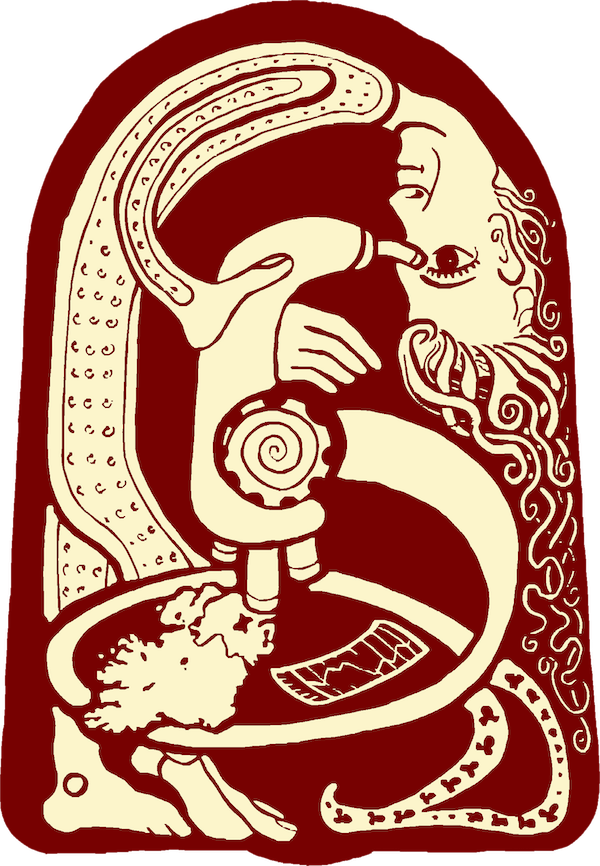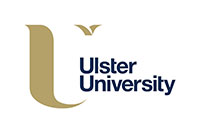Introduction to the CAIN Web Site
 Update on CAIN
Update on CAIN
There is a brief update on the current (February 2021) situation of CAIN. It includes a note of the consultation that was held in 2019, and the discussions around the options for CAIN.
Introduction
CAIN (Conflict Archive on the INternet - cain.ulster.ac.uk) is a Web site which provides a wide range of information and source material on the Northern Ireland conflict and politics in the region from 1968 to the present. The site also contains some general information on Northern Ireland society. The CAIN Project began in 1996 and the Web site was first made available on-line in March 1997.
There are CAIN Flyers / Leaflets available with background information on various aspects of the work of CAIN.
 Location
Location
CAIN is located on the Magee Campus of Ulster University (www.ulster.ac.uk).
Institutional Relationships
CAIN is a constituent part of ARK (Access Research Knowledge - www.ark.ac.uk) which is a joint resource between Ulster University and Queens University Belfast. ARK provides access to social and political material on Northern Ireland that informs social and political debate in the region and raises the profile of social science research.
 CAIN is based within INCORE (International Conflict Research Institute - www.incore.ulster.ac.uk), which is part of the School of Applied Social and Policy Sciences, within the Faculty of Arts, Humanities and Social Sciences, in Ulster University.
CAIN is based within INCORE (International Conflict Research Institute - www.incore.ulster.ac.uk), which is part of the School of Applied Social and Policy Sciences, within the Faculty of Arts, Humanities and Social Sciences, in Ulster University.
INCORE is a joint project of the United Nations University and Ulster University. Combining research, education and comparative analysis, INCORE addresses the causes and consequences of conflict in Northern Ireland and internationally and promotes conflict resolution management strategies.
Background on the CAIN Project
CAIN - Conflict Archive on the INternet
CAIN is the acronym given to the Web site and the Project which is developing the site.
Development of an Web site on 'the Troubles' and politics
The main 'product' of the CAIN Project is the CAIN Web site. CAIN staff were also part of the team which developed the Accounts of the Conflict (accounts.ulster.ac.uk) Web site
Target audience - Higher Education sector and beyond
The target audience was initially the Higher Education sector in the United Kingdom (UK). However the site is available free to anyone with Internet access and over two-thirds of users are from outside the UK.
Background information on the conflict
It is hoped that those who are new to the subject of the Northern Ireland conflict will find a range of information that will provide a useful introduction to the topic.
Guidance and information for researchers
It is also hoped that those who are carrying out academic research on the subject of 'the Troubles' will find the CAIN site a useful starting point.
Funding
CAIN has been funded by a number of organisations:
- 2018: Reconciliation Fund, DFAT
- 2016 - 2017: Ulster University
- 2017: CRC
- 2016: Reconciliation Fund, DFAT
- 2013 - 2014: European Union's PEACE III programme
- 2013 + 2014: Reconciliation & Anti-Sectarianism Funds, DFAT
- 2010: AHRC
- 2006 - 2012: ESRC
- 2006 - 2008: AHRC
- 2002 - 2005: The Atlantic Philanthropies
- 2002: University of Ulster
- 1998: DENI & CCRU
- 1996 - 1997: eLib
For full details see the page on CAIN Funding.
Original Partners on CAIN Project
Original Partner Institutions:
The development of the CAIN service was initially undertaken (1996-1997) by three partner institutions:
- the University of Ulster,
- the Queen's University of Belfast , and
- the Linen Hall Library.
Other groups and individuals:
A number of other groups and individuals have provided support to the Project. For example, within the University of Ulster the following groups had an input into the Project:
- Centre for the Study of Conflict (1977-2000) ;
- Educational Services; and
- INCORE (International Conflict Research Institute).
Objectives
The CAIN Project has a number of objectives:
- Establish and promote a resource of use to researchers, teachers, students and librarians
- Encourage those who hold relevant information to contribute to the service
- Collaborate with and link to other initiatives
- Explore content, design and technical issues
Key Benefits
The main benefits of CAIN are:
- Improve access to information and source materials
- Assist in preparation of learning materials
- Encourage active learning
- Promote the awareness, value and use of networked information
- Reduce pressure on library resources
Trends in the topic area
There is a growing interest in:
- Conflict and peace studies
- Political studies, and
- Irish Studies
Further Information
More particular information on the early development of the CAIN Project (details of staff, list of papers, access statistics, promotional activities, etc.) can be found on the Project Background page.
Navigation / Finding Information
The following information on the layout and content of CAIN site is intended for first-time users or anyone who is having problems finding information.
Near the top of each web page on the CAIN site is a 'navigation' or 'status' bar which will help you to move between the main sections and also act as a reminder of your position in the site. An example of a status bar is as follows:
[Key_Events] Key_Issues] [Conflict_Background]
HOME: [Help] [Recent_Additions] [Associated_Sites] [Contributors] [Contributions]
[Commendations] [Citations] [Access_Stats] [Funding] [Copyright]
This particular status bar shows that the user is looking the [Introduction] page which is one of the pages associated with the HOME page [CAIN_HOME].
At the bottom of each page are a series of 'buttons' which provide links to: CAIN home page; information about CAIN; the site index; the site map; answers to frequently asked questions (FAQs); the search page; and contact details:
CAIN is based within Ulster University.
|
|||
|
Last modified : 05/05/2020 16:58:31
|
© 1996-2010 CAIN
|
|
|
|
||
If you are unsure about the location of particular information you should consult the 'help'page which contains links to the main index page and a site map. If you are still having problems you should try the full-text search facilities, which allow you to search for particualar words or phrases across the whole site. As a last resort you could contact the CAIN Director.
Outline of the CAIN Internet Site
The remainder of this web page provides an outline of the CAIN Internet site. You should use the 'BACK' button on your browser to return to this page.
Main Sections of the CAIN Internet Site
Material contained in the above sections comes from 3 main sources:
- material which was initially published in paper format; example
- text written by members of the Project Team; example
- text written specially for the CAIN site; example
Background Information
The 'Background Information' on the conflict contains a number of sections:
Introductions
- Brief introductions to the Northern Ireland Conflict
- Background on Northern Ireland society
- Frequently Asked Questions (FAQs)
Guides
- Guide to carrying out research on Northern Ireland
- Guide to Internet web sites containing information on the conflict and politics
- List of acronyms
- Glossary of terms related to the conflict and politics
Other Background Information
 Bibliography of the conflict
Bibliography of the conflict- Other bibliographies, databases, and electronic services
- Chronology of main events
- Abstracts on prominent organisations
- Biographies of people prominent during 'the Troubles'
- Database of those killedv
- Political initiatives
- Policy initiatives
- Political 'solutions'
- Election results
- Government Reports, and Acts of Parliament
- The media and the conflict
- Personal accounts of the conflict
The arts and the conflict:
- Political Wall Murals in Northern Ireland
- Examples of Political Posters, 1968-1999 Symbols used in Northern Ireland Photographs
Key Events
The CAIN site will provide information on five major events:
- Civil Rights Campaign (1964 to 1972)
- Internment (1971 to 1975)
- Ulster Workers' Council Strike (1974)
- The Hunger Strikes (1980 to 1981)
- Peace Process (1994 to the present)
- And thirteen other events
- Derry March (5 October 1968)
- People's Democracy March (1 January 1969 to 4 January 1969);
- Deployment of British Troops (14 August 1969)
- 'Bloody Sunday' (30 January 1972)
- Introduction of Direct Rule (30 March 1972)
- 'Bloody Friday' (21 July 1972)
- Sunningdale Agreement (6 December 1973 to 9 December 1973)
- Dublin and Monaghan bombs (17 May 1974)
- IRA Truce (9 February 1975 to 23 January 1976)
- United Unionist Action Council (UUAC) Strike (3 May 1977 to 13 May 1977)
- Anglo-Irish Agreement (15 November 1985)
- Brooke / Mayhew Talks (April 1991 to November 1992)
- Omagh Bomb (15 August 1998)
Key Issues
The CAIN site will also provide information on a number of major issues:
- Children and Young People
- Discrimination
- Education
- Employment
- Housing
- Administration of Justice
- Policing
- Violence
- The Media and the conflict
- Parades and Marches
- Policy initiatives
- Politics, political parties and the electoral system
- Women and the conflict
Other Issues:
- Collusion between Security Forces and Paramilitaries
- Commemoration in Northern Ireland
- Community Work Practice in Northern Ireland
- Minority Languages in Northern Ireland
Use Made of the CAIN Internet Site
- over 50,000 unique visitors per month who generate over 300,000 page views each month
- one third of users are from Britain and Ireland; one third from the USA; and one third from Europe and the rest of the world
(The access statistics exclude the use made of the site by the Project Team and the major search engines, and also exclude the 'hits' on image files.)

